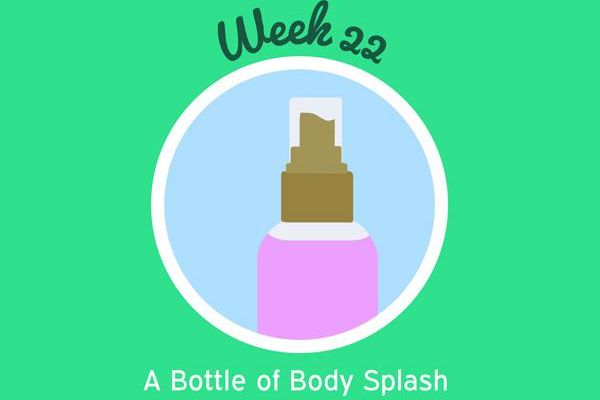Oh, baby, you're getting close to D-day—delivery day, that is. With just five weeks of gestation left, your little one is a hefty 5.5 pounds and has just about reached his full length, though he'll be packing on plenty of baby fat from here on out.
Tip of the week:
Hot or cold compresses are commonly used to ease muscle or joint pain, but what about headaches? It turns out that women with sinus or tension headaches may benefit from these pads. For the former, place a warm compress near the eyes and nose, and for the latter, try putting an ice pack wrapped in a towel at the base of your neck.
If he's not giving you chops and kicks quite like he used to, that's normal because he doesn't have enough space to perform his acrobatics. But there's still a lot going on inside that belly, as your baby's kidneys become fully formed and his brain development continues with lightning speed. Furthermore, his testicles are beginning to descend into his scrotum, and his teensy fingernails are reaching their full length.
If you were rubbing your temples while you read that, you're like many other women who experience headaches during pregnancy. Typically, they're most common during the first and third trimesters.
When headaches occur later in pregnancy, it's usually because of hormone surges and an increase in blood volume. Women may also get headaches due to a lack of sleep, low blood glucose or a lack of fluids. Moreover, side effects like stress, bad posture and vision changes can exacerbate headaches.
For women who get migraines, pregnancy can be an especially tough time—or not. It differs on a case-by-case basis, so it's a good topic to bring up with your health care provider.
Try some simple lifestyle changes to help prevent headaches, including practicing good posture, sleeping regularly, getting plenty of exercise and eating a healthy diet. It may also help to avoid certain food triggers, which commonly include chocolate, yogurt, aged cheese, peanuts, yeasty breads, cured meats and sour cream.
Before taking any medications to get rid of headaches, talk to your health care provider about which ones are safest for pregnant women. Also, do not take any prescription medications that were not prescribed to you or were prescribed before your pregnancy.







